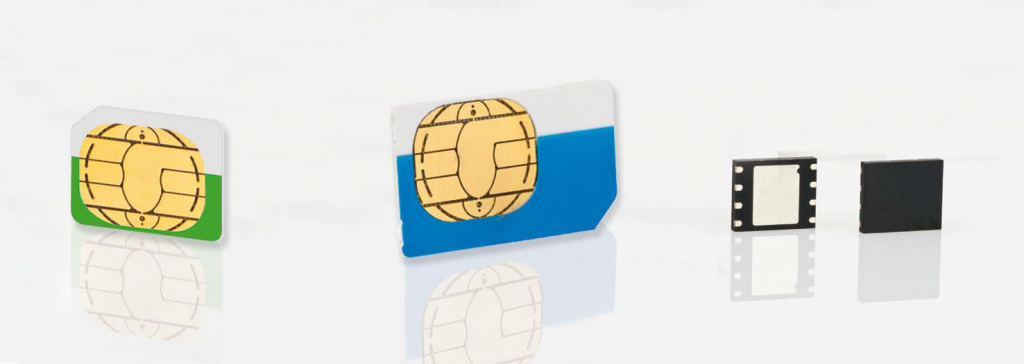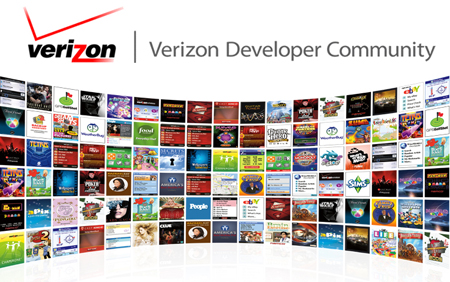My phone company is moaning, but not to me, well actually yes. They’ve called me asking why do I use so much of their network capacity. “I bought an unlimited data package” I answer. But they keep asking, saying it’s not good for the environment… and that if I keep watching Youtube videos on my smartphone the world will implode and then explode.
Am I being selfish? mmmmmm, I just like using all those web services & products on my phone and tablet as if I were in front of my pc desktop. But my carrier says it’s wrong. Is my usage and “always connected” lifestyle something carriers can’t keep up with despite all those LTE and 4G promises? Will the “unlimited” plans go away?

Seems like Telcos have a big dilemma in their hands… more usage of our networks = more money, but also the world imploding & exploding, and who’s to blame for this? All those Internet content & service providers like big G, big Y or big A, so selfish these. In fact, they’re so ungrateful that they want to become the new user-data monopolizers and go for a wild trip gathering user data, exploiting user data, monetizing this data…. for free! And who’s the best at doing such a hazardous yet very rewarding task? Google of course, although it seems it’s only a matter of time before Facebook becomes the user-centric king.
And why are we calling this a Sad Telco ballad? The increasing game of disdain between Telcos vs. Silicon Valley players leave the previous customer data-owner kings in a very delicate position for the coming years, loosing the customer ownership war and becoming mere connectivity providers is something they’re really not looking forward to, but it’s sort of happening.
Let’s begin our sad story with the day Apple had the amazing idea to retry and send a trial balloon to the market with all those rumors & secret works between the Cupertino house and Gemalto (SIM card manufacturer & digital security giant). A new twist in the long-awaited network-agnostic era that Google had dreamed of and initially had planned for their flashy Nexus one.
GigaOM started reporting last October but the rumors go way back before the iPhone 4 was launched. In fact going back nearly 5 years ago Vanu Bose had already envisioned a network-agnostic cell-phone developing a technology that allowed a single radio to speak all forms of cell phone alphabet soup protocols, ranging from GSM to CDMA to HSPDA… .meaning a single mobile phone could work on several networks at the same time. This was a first option, then you have multi-IMSI SIM cards and the most plausible solution for Apple to finally absorb & control the whole ecosystem & user experience…. embedded or even virtual SIMs that would allow consumers to buy a phone via the web or at the Apple Store and then activate it using Apple’s App Store, selecting the carrier and service plan that best suits the customer.
We’re getting there, and while the rumors go on about Apple & Gemalto having tried to sing partnerships with carriers so that the phone while still using the traditional single-IMSI system, could roam onto the rest of networks… well, the carriers know this would mean the end of their locking-upgrading business model, and they’re yet not ready to be mere connectivity “dumb pipes”.

Once again the locking-upgrading game that carriers have used over the past decade for any mobile devices is getting more & more sophisticated with SIM cards that get tinier each day while being customized for the device manufacturer needs, new form factors (micro SIMS, dedicated M2M SIMs…), new ways of blocking the customer to use their mobile device other than what and who is supposed to be used for; and until now, this was a game everyone had to play.
What Apple & Google have tried to do (and will certainly succeed) is to open up Pandora’s box… and this is just the tip of the iceberg in the growing battle between Telco & Internet giants.
Sleeping Giants?
Wait a sec, Telcos are still handling the bull by the horns and won’t let go that easily. They GSMA has agreed to block this Apple-Gemalto surreal idea and will continue to block any initiative that, despite saving the customer a lot of trouble, could damage their slim figures anyhow.
And then you have the Telcos themselves trying to play the Internet game, they’ve been pretty quiet and not particularly active in the Internet-media space; and to be honest they have managed to break through big G or Msoft’s ecosystem just as badly as Apple & Google launching a network-agnostic device. Let’s take the example of Telefónica, one of those Telcos that keeps trying very hard, and might eventually get it right.
If we got back in time Movistar’s (Telefónica’s mobile brand) attempts at seriously entering the on-line game aren’t new (we’re not talking about simple & local web portals Orange style but about global web services used by any user). By the end of 2008 Telefonica had launched “Keteke”… a mobile social network that like pretty much any other allowed you to post, upload photos & videos and even interact in a virtual city. The adventure which had cost around 10mill € never took off, only a few thousands users that never truly engaged with the idea.
After letting it die last summer (now redirecting to Movistar’s youth web portal) big T then bought the second biggest social network in Spain “Tuenti” a bad copy of Facebook which despite the bad comparisons still has more than 8 million users. Movistar is now trying to squeeze the young Tuenti user base juice as much and as fast as they can… maybe before Tuenti dies itself.
Including the Tuenti app by default in all Movistar phones or launching Tuenti Mobile under Telefonica’s network are two of the several moves to come & exploit, the smart movement here is that as a “TU” user you may control all the aspects of your mobile contract from your Tuenti profile admin. This is what everyone is after, centralize & keep the user stuck in your ecosystem.

And going back to our sad ballad you probably remember Telco’s tantrum earlier last year when mr Cesar Alierta (president of Telefónica) launched a similar trial balloon thinking out loud in public”Internet giants are using our networks without paying anything, something useful for them but not for us. This is an unsustainable situation. We put the networks, the systems, after-sales service… we do everything. This is going to change, I’m convinced”. Then France Telecom’s Stephane Richard suggested creating system of payments by service providers as a function of their use… something many other European Telcos (TI, Voda…) do support (and already in place in the US). Ouch!
An argument which clearly crashes with the so called “net neutrality” & goes in line with what Mr Murdoch did with the content of his media … a thorny subject the F.C.C. is struggling to secure in the states while carriers like Verizon, AT&T or Internet giants like Google find logic to create “fast lanes” and different types of network access depending on the wanted service. In the meanwhile, Google keeps testing their own optic fibre solution and other connectivity alternatives… just in case Telcos wake up a day and decide to give preference to non-Google products.
Although this last battle has more to do with the local regulations and how Europeans are willing to protect their powerful Telco operators while Americans keep pushing the wing spread of their Internet giants. But in the end customers may loose, as the “unlimited” Internet & data bundles seem to be on the edge of extinction.
how to ruin the user experience…
And because Telcos want to grab bucks from any source (who doesn’t) lets give a last example of this none-sense battle between Telcos & content providers which once more, it only ends up confusing the user.
At the MWC last year the wholesale applications community was announced. An initiative by the biggest mobile network operators to “avoid fragmenting the apps market and to give developers one point of entry”. A very needy movement that may arrive a bit too late to overcome the success of Apple & Android’s app model. This was just an announcement as the whole common standard is yet to be demonstrated at this year’s MWC. The problem is that while we wait (years) for this new standard to reach the audience, developers & customers will struggle to keep their apps from one phone to another and from one carrier to another.
We’ll see where it leads to, but again, in the meanwhile… our favourite Telco (don’t know if you’ve noticed yet) Telefónica has been cooking up another frontal attack to the new big app store pie monopolised by Apple & Google.
Mr Alierta already announced earlier last year (while suggesting Google & content providers to pay for the network.) Telefónica’s “BlueVia” a global app store that enables any developer to test their app with Telefonica’s customers. A strategy following the steps of Vodafone in 2009, Orange or Verizon that tries to englobe an app world for more than just consumer mobile devices.
They’re coping the already famous 70% for the developer 30% for the network revenue model that Apple has popularized (they say many other models will come) and again they’re giving it their own twist. Bluevia will (just like with tuenti) give the possibility for the developer to charge the final customer via the carrier’s bill, SMS … meaning no need to checkout with Google or pay-pal or via App store… everything is kept in Telefonica’s hands. How will this match having an Android an iPhone or a Blackberry? Will they force to add their own app store on top of the manufacturer’s choice?
Let’s see… Verizon for example has different mobile stores depending if you’re a Blackberry or an Android user… (maybe now that they got the iPhone they may launch also one for it!). Their “V Cast App Store” comes pre-installed and also charges the final user through the mobile bill and not through the OS marketplace.

Another initiative to keep the customer in your “garden” but that will make this one even more confused when changing devices and / or operating systems.
The death of the Telco is nowhere near, but their traditional business model is. With an average 6% year-on-year growth some like Orange have given up on the content production activities to focus on connectivity services, others like Telefónica keep willing to control the user data, anywhow.
Telcos still have room for expansion, just like Apple, Google & Msoft are all jumping from the PC to the Internet to the software business then hardware creation, gaming, music and so on Telcos are quickly finding other ways to make their networks (old & new) usable … NFC, Machine to Machine, healthcare, cloud services …
I really hope my carrier finds a few new growth activities & markets as exponential as Google, Apple or Msoft keep developing… so they stop moaning at me, and so I can keep using unlimited everything… everywhere.
















